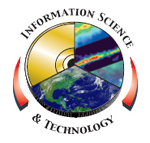Cyber-Physical Digital Twins – Georgia Tech Smart Campus Cases Studies
Digital Engineering, in its very essence, is concerned with advancements in computing, modeling, data management and analytical capabilities to improve the practice of engineering. Key to Digital Engineering is the concept of Digital Twin. While initially developed for engineering systems, Digital Twins are now being implemented for socio-cyber-physical systems (e.g. smart buildings, smart cities, etc.) due to their ability to leverage the benefits of digital technologies to non-digital systems. In their presentation, Dr. Olivia Fischer and Dr. Scott Duncan will first present a multi-scale, integrated environment that supports situational awareness, optimization, as well as forecasting and virtual experimentation at the Georgia Tech campus level. They will then discuss recent efforts in developing a Digital Twin of GT’s Kendeda Building for Innovative Sustainable Design (KBISD). The use of the Digital Twin made it possible for KBISD to receive certification in 2021 as a “Living Building” from the International Living Futures Institute (ILFI). Finally, they will address the shortcomings of current approaches to the development of Digital Twins and introduce ongoing efforts towards the definition and implementation of a model-based approach to the definition and development of Institutional Management Digital Twins which leverages architectural and Model Based Systems Engineering (MBSE) practices and principles.
Date/Time
Wednesday, November 3, 2021, 11am-12pm EST
This seminar can be viewed remotely via Microsoft Teams: Join here
Presentation located here. Recorded session is available through NASATube.
IS&T Colloquium Committee Host: Matt Dosberg
Dr. Olivia Pinon Fischer
Dr. Olivia Pinon Fischer is a Senior Research Engineer within the School of Aerospace Engineering at the Georgia Institute of Technology, where she leads the Aerospace Systems Design Laboratory’s Digital Engineering Division. In her current position, Dr. Pinon Fischer leads and manages multi-disciplinary research teams in the fields of digital engineering, digital twins & ecosystems, model-based systems engineering, digital factories, production analytics, and machine learning and deep learning applications to engineering and design problems. Dr. Pinon Fischer is a member of the International Council of the Aeronautical Sciences (ICAS) Programme Committee, an Associate Fellow of the American Institute of Aeronautics and Astronautics (AIAA), a member of AIAA’s Digital Engineering Integration Committee (DEIC) and the co-chair of its Digital Twin Subcommittee. Dr. Pinon Fischer holds M.Sc. degrees in a variety of engineering fields and a Ph.D. in Aerospace Engineering from the Georgia Institute of Technology.
Dr. Scott Duncan
Dr. Scott Duncan is a Research Engineer in the Aerospace Systems Design Laboratory, where he is a member of ASDL’s Digital Engineering Division, focusing on terrestrial infrastructure. He serves as the programmatic lead for the ASDL’s Smart Campus collaboration with Georgia Tech’s Division of Administration and Finance, which has in recent years expanded to involve external partners including Southern Company and the National Renewable Energy Laboratory. Dr. Duncan’s principal research interests include the development of “digital twins” that pair real-world system with modeled counterparts; systems architecting; use of systems engineering and data- and model-driven techniques to improve the sustainability of systems in the built environment; and the use of large-scale infrastructure systems as living laboratories. He has managed and participated in research programs pertaining to design-space exploration for power plants and grids; physics-based modeling of the water and energy use of building systems; development of methodologies for living experimentation in large scale infrastructure systems; and trade-off analysis for ground vehicles. Dr. Duncan received his PhD in Mechanical Engineering at Georgia Tech, with an emphasis on environmental life-cycle assessment of manufacturing systems.


